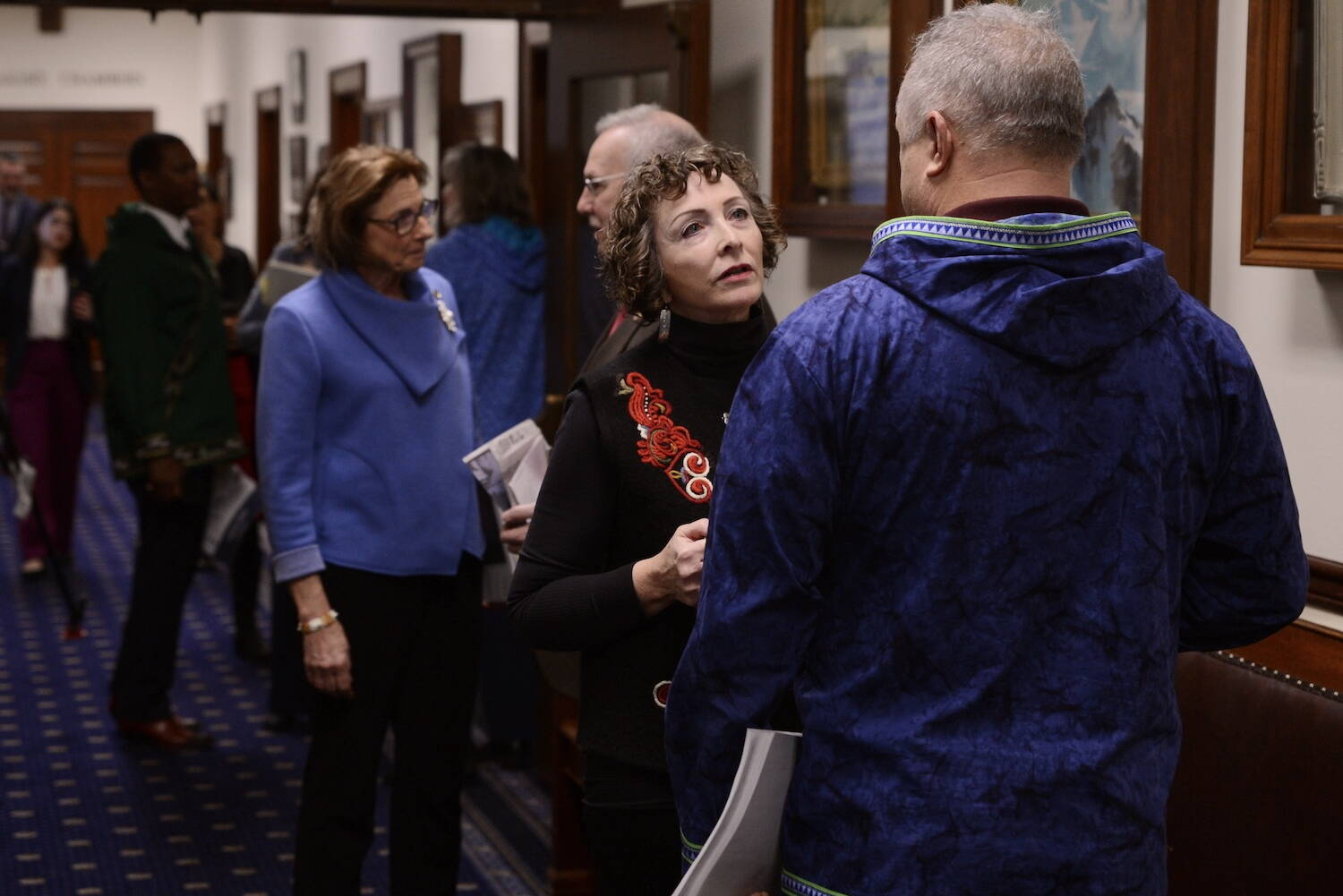A new proposal from Palmer Republican Sen. Shelley Hughes would require Alaska school districts to train a volunteer able to carry a concealed handgun on school grounds.
Schools would be exempted only if no one agrees to accept the duty or if no one is able to do so.
Hughes’ proposal, Senate Bill 173, received its first hearing last week in the Senate Labor and Commerce Committee.
The K-12 School Shooting Database includes 346 shootings and near-shootings at schools or school buses in the United States in 2023. Hughes said many of Alaska’s schools are rural, remote, and away from law enforcement.
“There have been times when it can take — because of weather — three to five days to get to a remote village that doesn’t have any kind of law enforcement present, that are armed. So SB 173 is a needed stopgap,” she said.
Front-end interventions, such as mental health treatment and resources to help students, are still needed, she said, but if the worst happens, she said she wants help nearby.
No public testimony was taken during last week’s meeting, but letters sent to the committee overwhelmingly opposed Hughes’ bill. Of 51 letters received through noon Jan. 24, only two were supportive.
Dr. Charles Ross Baldwin, a trauma surgeon in Anchorage, was one of those who wrote in opposition.
“As a trauma surgeon, I see a large number of self-inflicted and accidental gun-related injuries. While there are a lot of emotions around protecting children, the reality of putting guns in schools, in the hands of inadequately trained civilians, would likely increase risk of harm to students more than it would help prevent violence,” he said.
April Rochford of Anchorage said in her testimony that it doesn’t make sense, at a time when school districts are pleading for more funding, to require them to pay for the training.
“This bill is … frankly, quite stupid,” she said, adding that if legislators were serious about reducing gun violence, they would consider a safe-storage bill (House Bill 164) and one about extreme-risk protective orders (House Bill 162).
Hughes’ proposal is similar to one introduced in the Utah Legislature in November.
Current state law prohibits someone from carrying a deadly weapon on school grounds without the permission of the chief administrative officer of the school or district.
Larger schools and those in urban areas frequently have armed “school resource officers” permitted by the district, and Hughes said SB 173 would be an extension of that effort.
Under the language of the bill, school districts would have to create written policies and procedures for the armed volunteer, and they could limit the role to a school district employee, but that isn’t required.
If the volunteer is an employee, the district would have to pay for any mandated training. If the volunteer isn’t an employee, the district would be required to reimburse them for their costs, if they ask for reimbursement.
Districts would have to provide local and state police departments with active-shooter plans annually, and those plans would have to include the assigned location of any volunteer armed guards.
The bill also includes a liability shield if someone is harmed by a volunteer guard’s “act or failure to act during a crisis.” The shield doesn’t apply in cases of gross negligence.
The bill doesn’t mandate a specific number of hours of training but references a national standard for school resource officers.
“The initial training would be a four-day training,” Hughes said, “and then you can have drills and additional training on top of that. That would be the bare minimum required.”
State agencies said there would be no cost to them, but Sen. Forrest Dunbar, D-Anchorage, said that doesn’t mean it will be free.
“This will not be zero cost for our school districts,” he said.
Hughes said she believes legislators will have regrets if they fail to pass the bill and there’s a fatal shooting in Alaska.
“If we wait until after children have died, after school staff have died, not only would that be a dreadful shame, an inexcusable mistake, but it would be a travesty,” she said.

